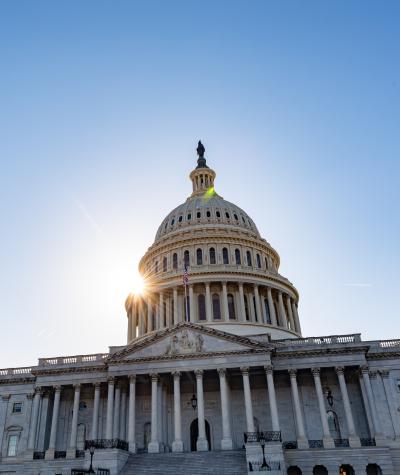A healthy democracy needs institutions that are free of corruption and safeguarded against abuses of power. Fulfilling these goals requires that we enhance checks and balances between our branches of government, promote transparency and accountability for officials entrusted with the public good, and protect our elections from improper interference by bad actors—both foreign and domestic.
Today, a comprehensive package of reforms designed to advance these priorities was reintroduced in Congress, the Protecting Our Democracy Act (PODA). Campaign Legal Center (CLC) strongly supports this legislation, which was introduced with the support of over 100 cosponsors.
If enacted, PODA would advance historically bipartisan policies and strengthen our democracy in three critical areas: restoring a balance of power, enhancing government ethics, and safeguarding elections.
Restoring a Balance of Power
The U.S. Constitution establishes the executive, legislative, and judicial branches of government as co-equals. This separation of powers is designed to ensure each branch can provide critical checks and balances against the other two, preventing any over-concentrations of authority that could tempt misuse.
However, in recent years, members of both parties and organizations spanning the political spectrum have increasingly expressed concerns about the growth of executive power at the expense of the legislature, as well as the corresponding inability or failure of Congress to provide proper oversight.
PODA would help restore essential checks and balances by, among other provisions, reasserting Congress's constitutional authority over federal spending decisions, restricting a president’s use of emergency declarations without legislative approval, and codifying Congress's subpoena and investigatory powers to seek information necessary for its oversight work.
Enhancing Government Ethics
To prevent corruption, or even just the appearance of it, government officials across all three branches must be held accountable to higher ethical standards. Voters have a right to know that their elected and appointed officials are acting for the public good, not their own personal or financial gain, nor that of their allies.
PODA would help address public concern about government ethics in a number of ways. First, it would reinforce the Hatch Act, a law that prohibits federal employees from engaging in certain political activities to keep partisanship away from the administration of government programs. PODA would specifically empower existing nonpartisan ethics officials to enforce statutory ethics requirements against senior political appointees.
In addition, PODA would provide new protections for inspectors general and whistleblowers, both of whom are independent checks that call out and investigate corrupt behavior. This important bill would require that every executive appointee sign a comprehensive ethics pledge, as well as establish new ethics rules around fundraising for presidential legal defense funds and inauguration committees.
PODA would further enhance government ethics by clarifying the scope of the presidential pardon power to avert misuse, codifying the Constitution's Emoluments Clauses to prevent improper gifts and profit, and establishing stronger guardrails against political interference in Department of Justice investigations.
Safeguarding Elections
To protect our right to self-governance, federal law bans foreign nationals, including foreign citizens and governments, from spending in federal, state, and local elections. Despite this law, foreign interests are able to exploit other vulnerabilities and loopholes to interfere in our electoral process. Bad actors at the domestic level could also use these avenues—knowingly or not—to accept improper assistance from foreign entities seeking to undermine our democracy.
To address this threat, PODA would require that political campaigns and parties, as well as political action committees (PACs) and super PACs, report attempts by foreign actors to influence our elections to the Federal Election Commission and Federal Bureau of Investigations. The bill would clarify that accepting nonfinancial benefits provided by foreign actors—including opposition research, polling, or other information—is also a prohibited act under our campaign finance laws.
Finally, PODA would extend the existing ban on foreign spending in candidate elections to ballot initiatives and referenda, as well as increase transparency around digital political advertisements to prevent foreign interference through such advertisements.
In short, the Protecting Our Democracy Act is an essential component of any effort to foster a more responsive government and build a democracy that works for all Americans. CLC urges Congress to take up this strong proposal and pass it into law without delay.

